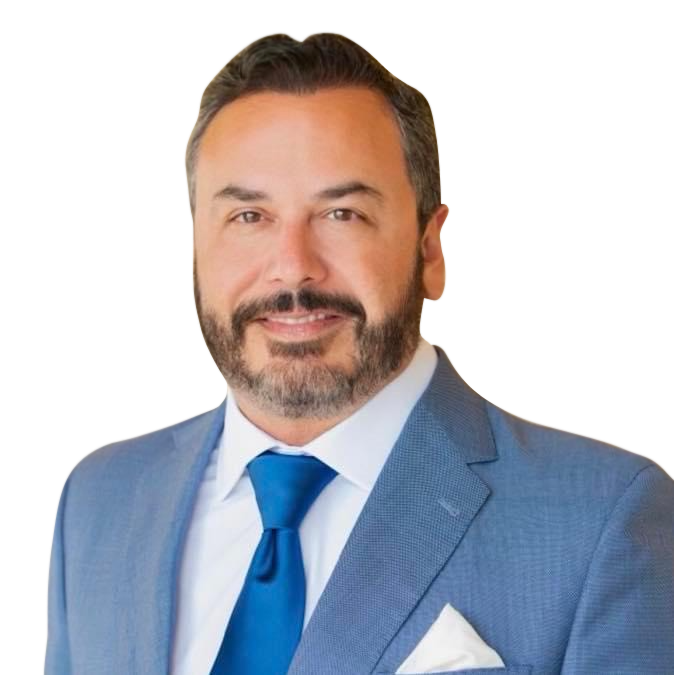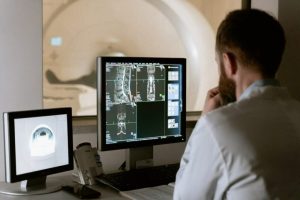Dr. Jose Pizarro is a radiologist with a subspecialty in neuroradiology which is the area of radiology that specializes in the head and neck. He’s been practicing since 2002 when he finished his Fellowship in neuroradiology at the University of Miami and Jackson Memorial Hospital. His earlier education came from the University of Puerto Rico where he had graduated with his Doctor of Medicine before moving on to Mount Sinai Medical Center in Miami where has completed his residency. Pizarro is board certified in radiology and specialty board certified in neuroradiology.
All this has led Pizarro to the biggest step in his life, the founding of Premier Diagnostic Imaging (PDI), a company that uses the most cutting-edge technology in radiological imaging to provide services for several hundred imaging centers across multiple states. PDI has been in business for over five years now and is still growing, a testament to Pizarro’s skills as a radiologist and his vision as an entrepreneur.
Where did the idea for your career come from?
My father and many family members from Puerto Rico are doctors, so it was natural for me to want to also be a doctor. After my medical education, I saw radiology as a field that was a natural fit for my talents. It was also a rapidly expanding field with lots of opportunities for practitioners to discover new ways to use technology to help our patients. My new business, Premier Diagnostic Imaging, is helping to lead the way in harnessing that technology to provide the best and most efficient imaging in the industry.
What does your typical day look like and how do you make it productive?
I start early in the morning to get an idea of the caseload for the day. We have cases funneled into our system from hundreds of locations. I do have other radiologists that work with me and, depending on our respective availability, we will try to divide the cases amongst us based on who specializes in the various areas. The day consists of taking on cases and consulting with referring physicians or other medical professionals.
We do quite a bit of reviews on cases from other locations where people have made interpretations and our clients want second opinions. We also handle expert witness work as well.
Then we typically will do some marketing throughout the day. We have lunches and do conferences for people who are interested in what we have to offer. That is how we’ve grown and gotten our name out there. A lot of times with the conferences that we give, people can earn credits toward their continued medical education and that is very helpful for them.
How do you bring ideas to life?
We invented a new type of practice with what we do. A big part of it is thinking outside the box, coming up with new ideas and executing on them. We tend to brainstorm together with our colleagues and our clients to come up with different, more efficient ways of doing what we do. A lot of it is just executing and coming up with new ideas.
We’re really not shackled by insurance companies or other traditional practices, but rather we take a lot of professional satisfaction from all the freedoms we gain through our new methods. Our unique way of doing things makes us more available and able to interact with our clients than typical radiologists.
What’s one trend that excites you?
The biggest trend right now is advanced brain imaging. This includes what we do, which is diffusion tensor imaging (DTI). The use of functional MRI is also growing. These are exciting trends because they are new areas of evaluating the brain that haven’t really been explored and are very challenging. These types of imaging are showing us information that we never thought was even possible to find. The brain is the most complex structure in the human body and there’s a lot of information yet to be obtained. There’s a long way to go, but we’re going in that direction. We’re pioneering these new areas of brain imaging, and it’s really enjoyable and satisfying to be able to do that.
What is one habit of yours that makes you more productive as an entrepreneur?
Being disciplined with my schedule is very important, especially when you work remotely like I do. I’m sure a lot of people can relate to that now thanks to the COVID situation. You have to have the discipline to get up early and be motivated without having other people around to follow or guide you. I think being disciplined has helped me quite a bit.
What advice would you give your younger self?
I would encourage my younger self to not be afraid to think outside the box and take chances to explore new things that may not be mainstream. Doctors tend to be very conservative and we tend to do things the same way with frequency, especially the way imaging studies are done and the way our practices are set up.
I think it’s important to find an area in medicine you’re passionate about and follow it. Chances are if you do it right, then things will fall into place for you. Success will come. That’s how I would reassure my younger self.
Tell us something that’s true that almost nobody agrees with you on.
The degree of pathology or abnormal findings that can be seen on imaging studies is greatly underestimated. I think that the vast majority of people in my field believe that when a study does not show a finding that’s obvious, that maybe there’s nothing wrong with the patient. But what I’ve found is that being detail oriented, looking hard enough, and know what to look for increases the probability that you’re going to find something in a symptomatic patient. I don’t think the majority of people that have symptoms are malingerers or faking what they have. I think there’s a lot of undiscovered pathology in imaging that has yet to be discovered. That’s our focus: To be very detail oriented. That has paid off greatly for the way we run our practice.
As an entrepreneur, what is the one thing you do over and over and recommend everyone else do?
I try to always be open to new ideas and suggestions. Sometimes I think businesses fail or cannot expand because they’re stuck on a certain way of doing things. If you are flexible, especially regarding the needs of your clients, there’s a much higher probability that your business is going to continue to grow and be accepted by your current and future clients. I think being stubborn can be a very detrimental thing for entrepreneurs.
What is one strategy that has helped you grow your business?
Availability. Being available to the clients, answering questions and taking extra time to discuss cases or educate them has made a big difference for us.
What is one failure you had as an entrepreneur, and how did you overcome it?
We opened our second opinion services to the public, and I think a lot of people just had a lack of understanding of what those services meant. It was very difficult to deal with a lay person that was submitting their examination for a second opinion because in many instances they really didn’t know where to go with those results.
What we did to modify that process was to deal directly with the treating physicians. If they want a second opinion, they’re the ones that come to us and we submit our results to them directly, rather than to the client or the patient. In that regard, it makes it a lot easier because those physicians are the ones that had the multiple face-to-face interactions with the patient, and it’s made our lives a lot easier and made everyone a lot happier. That was an adaptation that we had to make in terms of our second opinions.
What is one business idea that you’re willing to give away to our readers?
When I started in radiology, we were actually looking at a film and had to be at the location where the study was generated. Since those days, things have changed dramatically and evolved to a situation where we can be anywhere in the world and be able to provide our services with the improved communications technology. I think there was some hesitation towards those changes because people didn’t really understand what it entailed, but I think now because of the COVID situation in particular, what we do is better understood because most people are working remotely and are able to provide their services in a remote fashion.
To that end, I think the best advice I can give is to seek opportunities in the remote provision of any service, like health care, consultations, restaurants, hospitality, anything of that nature will eventually gravitate more towards working remotely. I think it’s important for people to keep their minds open to that and pursue those areas. I think when all is said and done and we’re through this pandemic, it’s going to be a new way of doing business and a new way of thinking. There may be many more opportunities where business can provide services remotely more efficiently and at a lower cost. Being on top of that will be a difference maker for many entrepreneurs.
What is the best $100 you recently spent? What and why?
Some of the continued medical education activities that I’ve done have been very well worth the expense. Technology is advancing so rapidly and there’s so much new information out that even a small investment such as a hundred dollars can enlighten you with newfound knowledge, and sometimes those investments can pay off a thousandfold. The money I spent on that recently presented me with some really incredible cutting-edge information that I was previously unaware of. That’s some of the best money I’ve spent. I’m a big proponent of education. I value that and I really explain to my children as well that spending money on their education is probably the best investment they can make.
What is one piece of software or a web service that helps you be productive?
I like using a service called PDF Filler because it allows me to review, edit and sign documents without having to print or scan. That has been a huge help for me. Before we would get documents and there were a lot of papers being printed, and a lot of waste. With this PDF Filler app, we’ve been able to streamline things, manage our documents, sign them, and forward them to people with secure links. We can even do notarizations if we needed to and convert documents from PDF to Word and other different formats. It’s been a really nice web service app that has made us much more productive.
What is the one book that you recommend our community should read and why?
I like many different types of books, but there is one book that changed my life and made me braver and more resilient. It’s called Man’s Search for Meaning by Viktor Frankl. It’s not an extremely long book, but it gives you a mindset that you can work through just about any difficulty in life. Sometimes when things do get difficult for me, I think of some of the different lessons from that book and it’s very helpful.
What is your favorite quote?
Albert Einstein said, “Insanity is doing the same thing over and over again and expecting different results.” I take that very seriously because I think sometimes as human beings we tend to follow the same patterns and encounter the same problems, so it’s important to think outside the box and explore different ways of doing things to achieve your end goals.
Key Learnings:
• Valuing education and knowledge is key to being successful.
• Be flexible in business and your career.
• Resilience will help you remain positive through difficult times.









